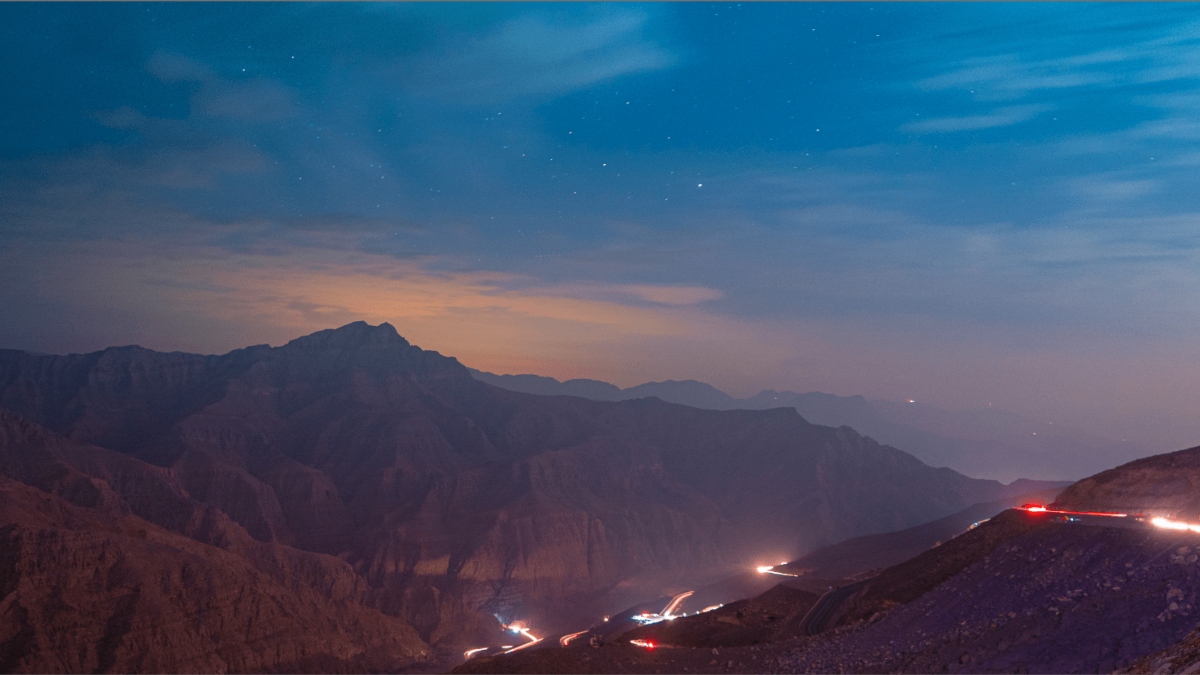The UAE’s Jebel Jais Mountain recorded the season’s lowest temperature at a brisk 3.4°C on Sunday morning. This frosty reading surpassed the previous low of 4.2ºC, observed at the same location on Saturday, and significantly undercut Al Ain’s 5.3ºC recorded in Raknah on January 10.
Residents of Ras Al Khaimah and surrounding areas were treated to this chilly surprise, marking a late but noticeable start to the sweater season in the country’s northernmost point. This temperature dip comes amid a week of weather fluctuations across the UAE, influenced by a surface depression from the southwest and humid southeasterly winds.
The recent weather pattern has also brought rain and lightning to most of the emirates, with six out of the seven emirates experiencing rainfall. The National Centre of Meteorology (NCM) reported showers in Abu Dhabi, Dubai, Sharjah, Fujairah, Ras Al Khaimah, Umm Al Quwain, and even in Khor Fakkan.
Looking ahead, the onset of the Scorpion Season, as described by renowned astronomer Ibrahim Al-Jarwan, is expected to bring increased rainfall throughout February. This 40-day period, known for its characteristic precipitation and fluctuating winds, is set to commence on February 6 and conclude on March 17. Al-Jarwan predicts the northern Arabian Island, including the Al Jouf region, will experience a ‘February frost’, especially during the early weeks of the month.
Contrasting with this sudden cold snap, the UAE’s winter has been generally milder this year, with higher average temperatures in December and less rainfall than in previous years, as noted by experts from the NCM.






